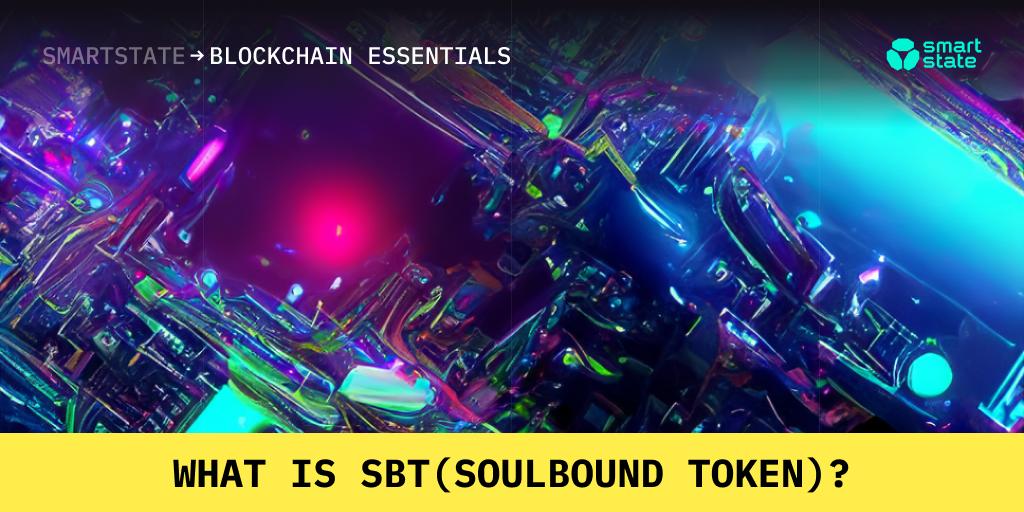What is SBT (Soulbound Token)?
Soulbound token (SBT) is a peculiar kind of NFT. These tokens can be transferred to anyone on creation, then they are tied to the owner’s wallet. The project was highlighted in May 2022 as a new idea of non-fungible tokens. Vitalik Buterin, the creator of the new project, more widely known as a co-creator of Ethereum, predicted that SBTs would have become a trend by 2024. First Buterin declared that in his personal blog, and then the project was put forward by him, Glen Weyl and Puja Ohlhaver in an article ‘Decentralized Society: Finding Web3’s Soul’.
The project was inspired by specific ‘soulbound’ artifacts in the creator’s favorite game, ‘World of Warcraft’. Those artifacts can not be exchanged or sold and are given as a reward for significant in-game achievements and contributions.
In short, SBTs are so-called digital identity tokens, which state personal characteristics and achievements (for example, participation in conferences, course graduation, personal assistance to another user, participation in DAO, working experience and much more) of their owner. They are created under blockchain accounts or Soul-wallets. With their help, digital personal reputation can be formed. One of the goals was to reduce users’ dependence on centralized services such as OpenSea or Twitter. SBTs will help to avoid excessive posting and other extra effort to prove author’s rights and raise trust among users. This works via the tokens tied to the wallet representing actual facts. There will be no doubt that this or that piece of art was created by a certain artist. Fraud or stealing can be zeroed. Being untransferable, such tokens will become the most solid proof.
But not only the copyright and reputation can be the field of applying SBTs, the idea was to apply it in everyday life. Users can store other personal information there, such as CV or medical records. Each user can own several Soul wallets for different types of information (for example, to keep a working portfolio in one, licenses in another, etc.). And even a company can use the tokens to prove their characteristic, raise trust and have access to some other convenient options (to reward the employees, for example).
Use cases
In plain words, if we compare NFTs and SBTs, the former mainly represent property and assets, while the latter represent reputation and life story and they can be really called ‘priceless’.
To be more precise, where exactly can SBT be useful?
- Educational records. People can study all their lives (school, college, university, courses, degrees, etc.). The process of educational recording is gradually becoming digital, and the documents need to be accessible quickly. It must be easily proved that the person has really achieved the degree or certificate. Thus, a university or other educational institution can create a Soul account and issue SBTs for students. As these can not be transferred to someone else, anyone reading the educational ‘reputation’ data may be sure of the data fidelity.
- Work records. Another possible and similar field is CV, which can include portfolios, applicant personal information, working experience and everything else required in a CV. Former employers can create special experience SBTs with the employee's professional achievements. And the owners themselves can do the same to make portfolios. As in the previous case, the tokens act as qualification proofs.
- Medical records. A very important case for people and companies. Medical records can be made faster, and in case of changing the medical institution (clinic, hospital, lab, etc.) the data will provide up to date and accurate information about the person. It can also help companies in cases when the position needs special health regulations and limitations. It may help to avoid mistakes with candidates.
- Reputation and raising trust. SBTs can help with replacing various personal and company ratings (for example, in case of loan rating, for which banks need to estimate the client's risk profile and follow the loan history). The reputation of experts, kept in SBTs, can help clients to avoid fraud and scams (for example, in buying property). SBTs can be used in DAO voting and distribute votes according to the user's activity, thus, the reputation will be valued instead of the amount of tokens owned. SBTs can help to counter Sybil attacks during DAO votings and avoid manipulation of the process and project development. Being public by nature, the tokens can be used to discover possible attackers. For example, in the Ethereum-based Optimism solution, SBTs may grant access to special chambers, each of them having its own functions and regulations.
- Company rewarding. Companies can also reward the best employees by creating special SBTs for them. They can be given for any reason, such as working activity or creative projects. Such SBTs can be used to form a personal or company portfolio and raise trust to the company, showing the employee’s achievements. Even if the person does not leave the company, but working in a field where clients’ trust to the specialist is especially significant (for example, real estate), SBT may help possible clients to choose the most reliable expert. However, not only employees can be rewarded. Adidas also used SBTs instead of VIP-cards for their clients.
- Property and identification. SBTs can be created to replace certificates of proof of copyright for digital collections and other creative pieces and pieces of art, which need such proofs. Licenses and private property ownership documentation can be wrapped in such tokens. SBTs can help to facilitate admission to certain DeFi products and services, where reputation and other personal characteristics are needed to gain access.
On the other hand, apart from visible benefits, there are some risks related to the use of SBTs. One of the main risks arises from its main selling point – the impossibility to transfer. The owner's account can be hacked to use the SBT owner’s identity as a disguise. Other risks relate to confidentiality attack vectors and social rating system overindulgence.

